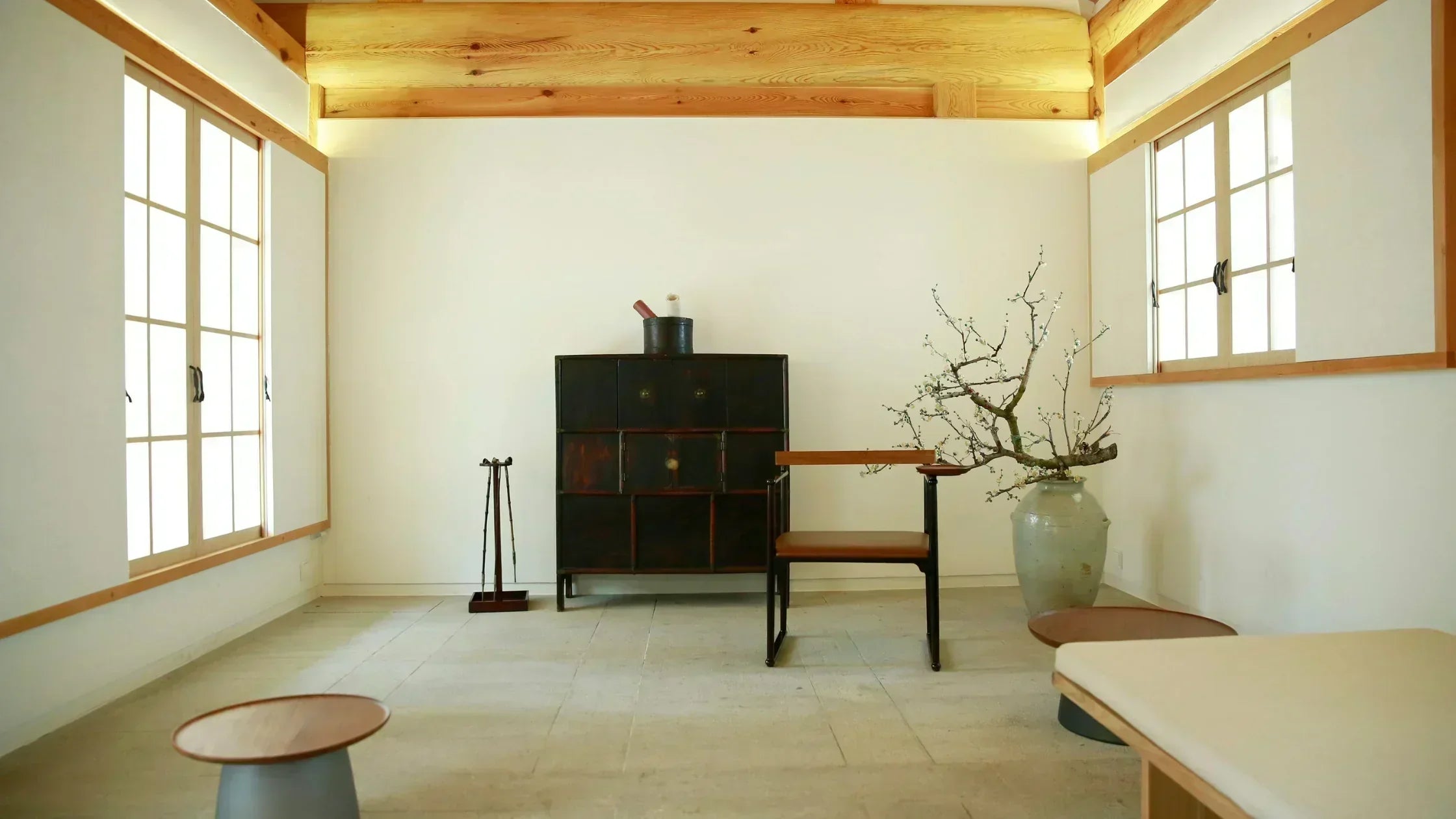With the hustle and bustle of everyday life, having a quiet retreat at home can be a game-changer. A Zen corner is a simple, cozy space where you can unwind, clear your mind, and relax. Inspired by Japanese design principles, a Zen space focuses on minimalism, nature, and mindfulness to bring a sense of peace into your daily routine. Whether you’re a fan of Japanese home goods, Wabi-Sabi aesthetics, or simply enjoy a clutter-free space, setting up a Zen area can help you create a personal sanctuary.
1. Find the Perfect Spot
Start by choosing a quiet, uncluttered area where you can relax without distractions. This could be a corner of your bedroom, a section of your living room, or even a cozy spot on your balcony. If you can, pick a place with natural light, as it can help lift your mood and create a warm, inviting atmosphere. If you’re drawn to Japanese home décor, you might even consider a spot near a Shoji screen or a low table with floor cushions.

2. Keep It Simple
A Zen corner should be clean and uncluttered. Too much stuff can feel overwhelming, so remove anything unnecessary and stick to the basics. A meditation cushion, a tatami mat, or a simple wooden bench is really all you need to create a peaceful space. If you appreciate Japanese minimalism, you might also want to incorporate handcrafted ceramics or natural linen textiles to enhance the aesthetic.

3. Add a Touch of Nature
Bringing natural elements into your space can have a calming effect. Consider adding houseplants, bamboo, stones, or even a small indoor fountain to enhance the peaceful atmosphere. A bonsai tree, peace lily, or a simple succulent can add life to the space while also helping to purify the air. If you enjoy the meditative process, a tabletop Zen garden with sand and rocks can be a great addition, reminiscent of Japanese rock gardens found in temples.

4. Choose Calming Colors
The colors in your Zen space should be soft and soothing. Stick to neutral, earthy tones like beige, white, light gray, or soft green to keep the atmosphere relaxed. Many Japanese-inspired interiors favor natural wood, muted tones, and subtle textures to evoke a sense of calm. Avoid bright, bold colors that can feel overwhelming and distracting.

5. Make It Comfortable
Comfort is key when creating a space for relaxation. A meditation cushion (zafu), a floor pillow, or a soft futon can make it easier to sit comfortably. If you’re inspired by Japanese interiors, consider using a tatami mat or a low wooden table where you can enjoy tea or practice mindfulness. You might also want to add a cozy blanket or a plush rug to make the space feel even more inviting.

6. Use Relaxing Scents
Scents can play a big role in setting a peaceful mood. Try using essential oils, Japanese incense (Kōdō), or scented candles to create a calming atmosphere. Scents like sandalwood, hinoki (Japanese cypress), green tea, and yuzu are particularly soothing. A ceramic diffuser can be a stylish and practical addition to your Zen space.

7. Add Soothing Sounds
Soft sounds can help you relax and focus. Consider playing gentle instrumental music, nature sounds, or traditional Japanese flute music (shakuhachi) to create a serene ambiance. If you enjoy the sound of water, a small indoor fountain can add a soothing background noise, similar to the tranquil water features found in Japanese gardens.

8. Make It Personal
Your Zen space should reflect your personality and what helps you feel at peace. Add personal touches like a vision board, meaningful artwork, or calligraphy scrolls that inspire you. A small altar with candles, crystals, or a Daruma doll can also serve as a focal point for meditation and reflection. If you’re a fan of Japanese home décor, consider incorporating a handcrafted tea set for a mindful tea-drinking ritual.

9. Keep It Tech-Free
To truly disconnect and relax, make your Zen corner a tech-free zone. Keep TVs, laptops, and phones out of the space so you can focus on meditation, deep breathing, journaling, or reading instead. Traditional Japanese homes often prioritize simplicity and intentional living, which means limiting distractions and embracing stillness.

10. Make It a Daily Habit
Having a Zen corner is great, but it’s only beneficial if you use it regularly. Set aside time each day for mindfulness practices like meditation, deep breathing, tea ceremonies, or simply sitting in stillness. Even spending 10-15 minutes in your Zen space can help reduce stress and improve your overall well-being.

Final Thoughts
Creating a Zen corner doesn’t have to be expensive or complicated. By choosing a quiet space, keeping it simple, adding natural elements, and making it comfortable, you can create a peaceful retreat right in your home. If you’re drawn to Japanese aesthetics and home goods, incorporating natural wood, handmade ceramics, and minimalist décor can enhance the authenticity of your space. Let your Zen corner remind you to slow down, breathe, and find balance in your daily life. Start small, stay consistent, and enjoy the calm and relaxation your little sanctuary brings.



Share:
The Perfect Japanese Gift: Thoughtful Ideas for Any Occasion
Essential Japanese Kitchen Tools Every Foodie Needs